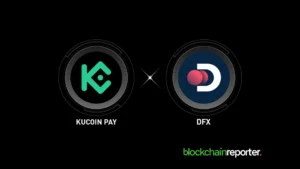
On Nov. 9, 2020, the UK Treasury Department revealed that they were drafting private stablecoin regulation in what has been viewed as a new chapter in the country’s financial services industry.
Treasury’s Chancellor Rishi Sunak highlighted the proposal to regulate privately-issued digital currencies while also stating that his department was carrying out research into CBDCs.
“New technologies such as stablecoins – privately-issued digital currencies – could transform the way people store and exchange their money, making payments cheaper and faster,” Sunak explained.
The UK government has long continued to pursue the goal of renewing its position as the world’s pre-eminent financial center.
Sunak wants the UK’s financial industry to lead the global conversation on stablecoins and CBDCs. He argues that his department’s proposals will ensure the UK moves forward as an open, attractive, and well-regulated market.
The draft proposal doesn’t reveal extensive details on the concrete regulatory framework that would be adopted. However, it mentions that stablecoins issuers will be required to observe the minimum standards placed on the open traditional payment entities across the UK.
UK Continues Research into CBDCs
Chancellor Sunak’s announcement also revealed that both the Bank of England (BoE) and Her Majesty’s Treasury were focused on CBDC research.
Central banks worldwide are embroiled in a race to build a CBDC to serve as a complement to cash. The Coronavirus epidemic’s challenges reshape the urgency of creating a digital form of a nation’s fiat money.
These central banks issued digital currencies seem to be a reaction to decentralized digital assets, rather than an acceptance of cryptocurrencies such as Bitcoin. Indeed, many governments have expressed fears of crypto’s threats to the existing banking and finance sector.
Since the announcement of the Libra project last year, many governments have started developing CBDCs that are controlled directly by the country’s central bank and backed by government power.
The UK plans to take a leading role in the global conversation on CBDC’s and has ramped up research into whether this currency could present a viable alternative to cash.
Fostering Private Stablecoin Development
Treasury Chancellor Rishi Sunak’s recent remarks mark the latest attempt by world governments to look into stablecoins and whether they meet the high standards expected of other payment methods.
The European Union has been relentless in its call to develop clear regulatory rules to nurture private stablecoin developments.
As for now, finance ministers and central bankers of the Group of Seven (G7) insist that any global stablecoin project would be halted until a suitable regulatory oversight is in place.








